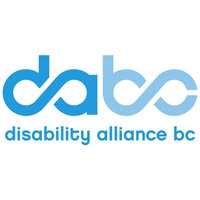Changes to the Canada Pension Plan (CPP) Appeal Process
Dear Community Partner,
We are writing to you to let you know about changes that the Office of the Commissioner of Review Tribunals (OCRT) has made to the CPP appeal process.
Below is a copy of the notice that the OCRT has released.
These changes will have a significant impact for individuals who represent clients before the Review Tribunal.
It has been the Tribunal’s practice to prepare a hearing file that is numbered, indexed, and bound and to send a copy to the appellant and the appellant’s advocate. This will no longer happen. In addition, the Tribunal has been providing appellants with copies of all documents that were sent to it by Human Resources and Skills Development (HRSDC) and their advocate. This practice has also been changed.
The Tribunal will still obtain a copy of an individual’s CPP file from HRSDC but they will no longer organize it in a coherent fashion. It will be sent to the appellant’s representative in a folder. It will not be numbered, bound, or indexed. The appellant will not receive a copy of the hearing folder.
The only document the Tribunal will send to an appellant is a letter acknowledging that it has received the appeal. From that point onward, nothing – not even a Notice of Hearing or an expense claim form – will be sent to the appellant.
The only way that an appellant can stay on top of what is happening with their appeal or know what documents might exist is if their advocate copies and mails everything to them. These changes will add extra time to the workload that advocates face (many do not have support staff) and create additional costs (postage and photocopies) for the organizations they work for.
For individuals who retain legal counsel or pay a consultant, the disbursement fees will become astronomical.
The changes will also make Tribunal hearings more cumbersome. Without page numbering or an index there will be delays as all participants sift through piles of documents (some appeals can contain a thousand pages) in order to find the one that is being discussed.
The ORTC has indicated that these changes are subject to adjustments. We will provide you with further updates as the full impact on the appeal process becomes known.
If you have any questions about these changes please feel free to email our senior CPP advocate Peter Beaudin at peter@bccpd.bc.ca or phone him at 604-872-1278.
Sincerely,
Robin Loxton, Program Director, Advocacy Access
Important Changes
OFFICE OF THE COMMISSIONER OF REVIEW TRIBUNALS (OCRT)
OCTOBER 1, 2011
The OCRT has initiated a number of organizational and business changes to align itself to our current financial and workload reality. We are taking steps to ensure we have the capacity to manage the expected increase in appeals while continuing to provide quality service to all parties to the appeal. This has resulted in some important changes in our communication with appellants and their representatives.
What’s New
- Beginning immediately, we will communicate with representatives only. Oral and written communication will be with representatives only. Appellants will no longer receive a copy of the hearing materials and will be encouraged to direct all inquiries to their representative;
- Hearing materials will not be numbered, indexed or bound;
- A copy of the documents provided by Human Resources and Skills Development Canada pursuant to Rule 5 of the Rules of Procedure of a Review Tribunal will be provided in a blue folder labeled “Appellant’s File from HRSDC”. (This was previously known as Book 1 of the Hearing File);
- For hearings scheduled after November 18, 2011, representatives are required to maintain copies of correspondence and to bring the same to the hearing. In other words, representatives will no longer receive a copy of “Book 2 of the Hearing File” containing copies of information previously distributed;
- Hearing materials provided to Panel Members will be separated into three sections by tabs: OCRT Correspondence, Appellant Correspondence and Human Resources and Skills Development Canada Correspondence. To help streamline the process, we ask representatives to provide one submission, numbered and indexed, to this Office at least 60 days before the hearing. This will reduce the flow of documents and will enhance the conduct of the hearing. Do NOT bind the submissions.
What Stays the Same
- We will continue to notify representatives early in the process of the expected date of the hearing and other important details about the appeal;
- We will continue to consult with representatives to schedule the hearing;
- We will continue to respond to inquiries about the appeals process and legislative requirements for CPP and OAS benefits;
- We will continue to distribute evidence submitted in a timely manner;
- We will continue to hold workshops for representatives. The next workshop will be December 1, 2011 in Toronto. Call for more information.
We remain committed to our vision of being a leading-edge administrative tribunal which resolves appeals quickly, efficiently and fairly. We recognize that there will be challenges to all participants in the hearing process as we implement these changes and look forward to your cooperation.
Nancy LePitre, Director, Tribunal Operations & Communications
Email: nancy.lepitre@ocrt-bctr.gc.ca; tel: 1-800-363-0076






